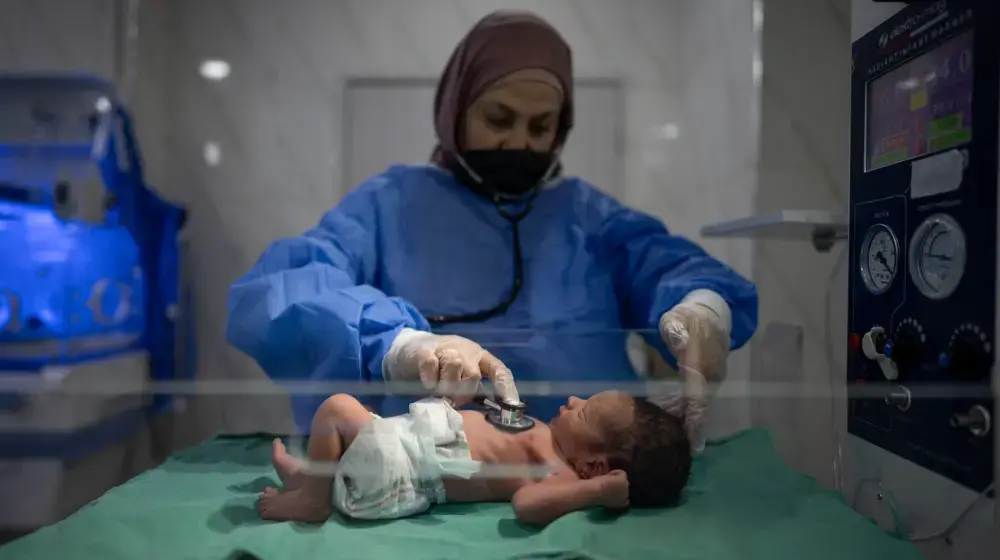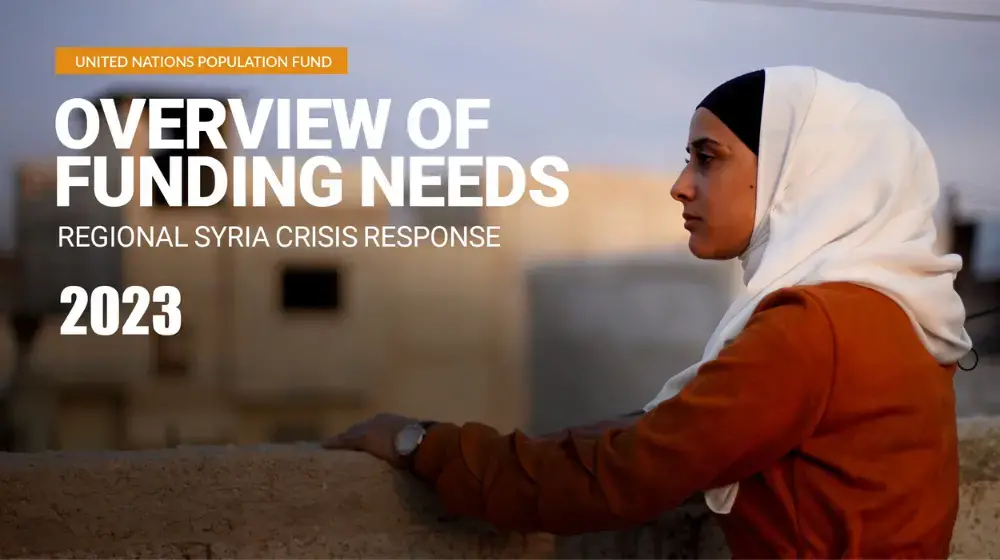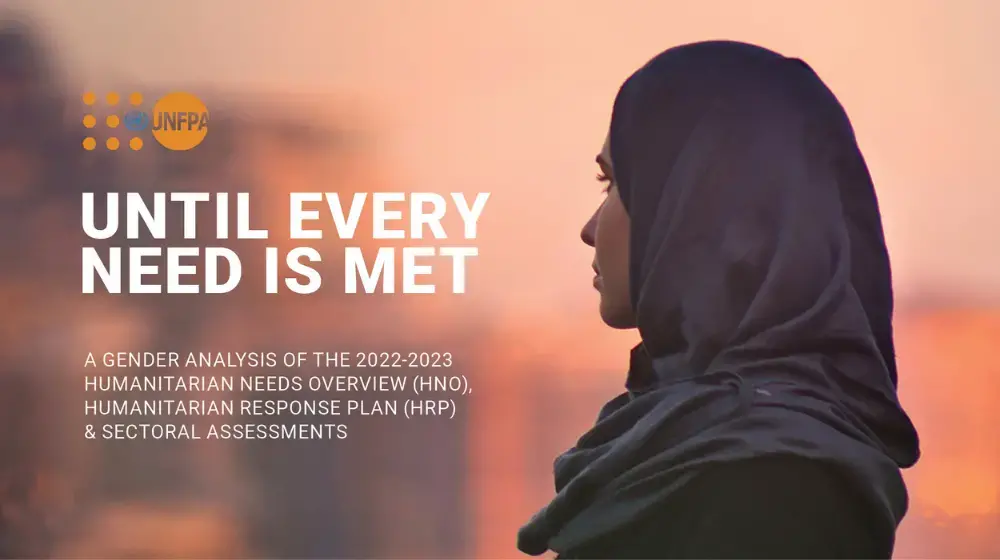New York, 06 November 2017
As delivered
Excellencies,
Distinguished delegates,
Thank you all for coming today. I visited Yemen from 24 to 28 October. It was my first visit there as Emergency Relief Coordinator. I also attended a valuable meeting organized by the King Salman Relief Center on Yemen in Riyadh on 29 October.
I visited Aden, Lahj, Sana’a, Hudaydah, Hajjah and Amran governorates, where I met hundreds of Yemenis – many of whom told me stories of appalling suffering. I wanted to take this opportunity to share some of my findings.
First, the conflict in Yemen remains active across many fronts. Indeed, during my mission, six air strikes were reported near the OCHA office in Sana’a within hours of my arrival in Sana’a, requiring staff to retreat to a bunker. You will all have seen reports of further fighting in recent days, including air strikes and a missile attack on coalition partners supporting the legitimate Government of Yemen.
I am, in addition, deeply concerned about recent – and ongoing – violence in Aden which directly threatens United Nations and other international humanitarian agency operations – and therefore directly threatens the lives of millions of Yemenis.
Conflict is causing death, injury, sexual violence and abuse, damage and destruction, massive displacement, loss of livelihoods, hunger and disease. Travelling on both sides of the conflict’s front lines helped me grasp the cascading consequences for civilians.
I again implore everyone to do everything – everything – they can to ensure full compliance with international humanitarian law, to eliminate all interference with essential humanitarian work, and to behave in a proportionate way, mindful of the consequences of their actions on civilians.
Everywhere I went, I saw roads, bridges, factories, hotels, and houses that had been destroyed by bombing or shelling.
I visited hospitals in Lahj and Hudaydah governorates – the former under the control of the Government of Yemen, the latter controlled by decision makers in Sana’a. Both had barely any electricity or water. In Lahj, I met severely malnourished children who are fighting death – like six-month-old Rafa. She has been been suffering from chest pain as well as severe malnutrition since birth. Two million children in Yemen under the age of five are acutely malnourished and at grave risk of dying.
In Hudaydah, I met seven-year-old Nora. She weighs 11 kg – that is the average weight for a two-year-old, not a seven-year-old. Dr. Khaled, the manager of Al Thawra hospital, where she is being treated, said staff there regularly turn away gravely ill malnourished children because they cannot accommodate them. I also met some of the 3 million people who have been forced to flee their homes, and I witnessed their dreadful living conditions.
In a settlement for internally displaced people (IDPs) in Abs district, in Hajjah governorate, I met Fatima. Fatima is 25. She fled with her family from Sa’ada. They used to make a good living from their small farm. Fatima now expects to have her seventh child this month, in her ragged tent made of plastic sheeting with inadequate medical supervision. Her husband is disabled and cannot work. They survive by begging, and from humanitarian assistance.
Women and girls in particular have been hard-hit in this crisis. Before the conflict, gender-based violence was widespread in Yemen, with millions of girls and women at risk. But the incident rate has risen since the conflict began.
I met health workers who have not been paid for months and can barely afford the transport costs to get to work, but who valiantly toil to contain the malnutrition and cholera crises. And I heard from children who have not been to school for almost a year because their teachers’ salaries have not been paid.
Across the country Yemenis are being kept alive by brave and committed aid workers, working under extremely difficult conditions. I witnessed their determination to serve the Yemeni people, and the efforts to which they will go to reach the vulnerable. I applaud the professionalism, commitment and bravery of the staff of UN agencies, NGOs, the Red Cross family, including the ICRC and the Emirati Red Crescent, as well as the King Salman Relief Center and a host of other organizations doing essential, life-saving work.
Excellencies,
Distinguished delegates,
As we all know, only a political resolution to this crisis will bring a sustainable end to the horrendous suffering. We must all do whatever we can to support that.
In the interim, I will stress three areas where we need to see more progress.
Firstly, I repeatedly heard from ordinary Yemenis and people in positions of authority about the urgent need to cover the salaries for the 1.25 million public employees, many of whom have not been paid in almost a year.
Unpaid salaries are a main driver of humanitarian need – both by directly affecting the family income of 8 million people, and by slowing or ceasing operations in the few remaining basic services not damaged or destroyed by fighting.
Without doctors and nurses, hospitals simply shut down – only 45 per cent of health facilities are fully functioning. Some 15 million people lack adequate access to clean water, sanitation and hygiene, or health services.
Without sanitation workers, rubbish is piling up in the streets, creating the perfect conditions for cholera. Without teachers, schools remain closed. What do we think a generation of Yemeni children robbed of an education will be like as adults?
Secondly, the humanitarian response to the world’s worst hunger crisis and cholera outbreak must be fully resourced.
Today the Yemen Humanitarian Response Plan is 57 per cent funded with $1.3 billion of the $2.3 billion required to reach 12 million people this year. The United Nations and our partners are ready to scale up further. But we need more generous and timely donor support. In order to reach more people through the coordinated response, I respectfully ask all to directly fund the Yemen Humanitarian Response Plan, including through the Yemen Humanitarian Fund, and implement pledges and commitments much more quickly.
Despite challenges, humanitarian partners have already reached 7.7 million people this year with direct assistance. The funding we have received has allowed the World Food Programme to deliver food aid to 7 million people in recent months. The World Health Organization, the UN Children’s Fund, the International Committee for the Red Cross, and leading NGOs have been able largely to contain the devastating cholera epidemic.
Those are examples of what we can do with the funding that we receive, but sustaining and scaling up the response requires more money.
This brings me to my third and final point.
Our ability to scale up humanitarian assistance is also hampered by access constraints.
All parties to the conflict must provide safe, rapid, unhindered humanitarian access to people in need, through all ports and airports, including Hudaydah port and Sana’a airport. The airport offers the only hope for many to receive the medical treatment they require abroad.
Humanitarian agencies are effective because we remain impartial, neutral and independent. But on both sides of the conflict’s front lines, aid workers face bureaucratic delays, and outright denials of access when trying to provide aid.
And I want strongly to emphasize in this regard that it is absolutely essential that the operation of the UNHAS and related services for staff of humanitarian agencies proceeds unhindered day by day by day.
We appreciate the collaboration we have seen on humanitarian movements as part of OCHA’s deconfliction mechanism. We now need to see more progress on access for commercial vessels that are carrying vital humanitarian goods into Hudaydah port.
Excellencies,
I received assurances from all sides to address these challenges.
In Aden, the Prime Minister told me he would instruct his officials to pay health workers’ salaries across the county.
He also said he would be happy to see the four mobile cranes financed by the US government delivered to and installed in Hudaydah. I do not know who destroyed the original cranes. I do know that replacing them urgently would materially improve the relief operation and thereby save lives and reduce suffering.
I also asked the Prime Minister to get Sana’a’s airport reopened for commercial and humanitarian flights beyond UNHAS – UNHAS is a service for humanitarian workers and related staff, not Yemenis who urgently need medical treatment outside the country if they are not to die because their conditions cannot be treated inside the country.
The Ansar Allah/GPC decision makers in Sana’a told me they would address issues over increasing levels of interference in the work of humanitarian agencies, including delays in granting and the denial of visas, delays of essential equipment and supplies at the ports, bureaucratic impediments affecting NGOs and crucially the prevention of essential assessment of needs so that we can target our assistance most effectively.
We need to make headway in each of these three priority areas so we can save lives and relieve the appalling suffering of millions of men and women, boys and girls across Yemen.
Thank you very much.




